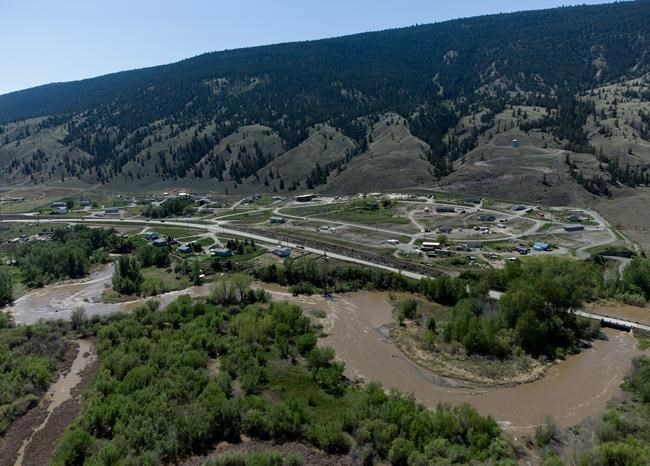The owner of a rail terminal in British Columbia's Interior says a lawsuit launched by the Bonaparte First Nation is a "collateral attack" on the company's "numerous" grants, permits, and licenses to operate the expanding facility.
The nation's claim filed last month alleges the facility operated by Ashcroft Terminal Ltd. has been developed without proper consultation, while unearthing and disturbing human remains on the nation's ancestral territory.
The Bonaparte First Nation alleges it was misled about the full scope of the terminal's expansion plans, "adamantly" denying ever receiving the full build-out details, the nation's lawyer Jason Gratl said.
In its response filed in British Columbia Supreme Court earlier this month, the company denies misleading Bonaparte, saying it "extensively engaged" the nation over its development plans as well as "archeological issues of concern."
The terminal services railway traffic on a 130-hectare property at the intersection of track networks owned by CP Rail and CN Rail, a "strategic" location that contains a tank farm, container storage, and other infrastructure,the response says.
The property about 300 kilometres northeast of Vancouver has had various owners since the mid-1860s, the company says, claiming in its response that the First Nation has never challenged any legal authorization permitting the facility's development in nearly two decades.
The terminal's expansion has been dependent upon customer demand and capacity requirements, building out as needed over the years since 2005, it says.
“That is the nature of such an inland port terminal," the response states. "As the Ashcroft Terminal acquires customers, and by extension the capacity demands of those customers increase, corresponding development of Ashcroft Terminal ensues. Client demand dictates the scope of the Ashcroft Terminal."
The First Nation's claim says the site was home to a historical village dating back thousands of years, a place of spiritual and cultural significance with "numerous" burials.
Development on the property has unearthed human remains and significant items, with dozens of archeologists spending thousands of hours at the site, court documents say.
Ashcroft Terminal says archeologists hired by the company had worked alongside those affiliated with the First Nation for years, but the relationship took a turn in June 2021, when protesters staged a hunger strike on the property.
The protesters from Bonaparte wanted to hold a blessing ceremony after human remains were discovered on the site, the company's response says.
Company representatives and the First Nation agreed on a reburial plan, and participated in a "unity horse ride" the following day, it says.
Ashcroft Terminal claims it hasn't dealt with any human remains found on the site without the nation's input.
The company and the band also began months of negotiations to formalize the terms of a "long-term relationship agreement," but Ashcroft Terminal says the First Nation stopped responding when the company shared a draft agreement last November.
The company denies Bonaparte's claims of Aboriginal rights and title over the terminal property and says the development work is lawful and properly disclosed.
Ashcroft Terminal's response also disputes Bonaparte's claims under the United Nations Declaration on the Rights of Indigenous Peoples, which compels signatory states to "seek to enable the access and/or repatriation of ceremonial objects and human remains in their possession through fair, transparent and effective mechanisms developed in conjunction with Indigenous Peoples concerned."
The company's response denies that the UN declaration and related legislation in B.C. "form the basis of any cause of action or claim known to the law."
The B.C. legislature unanimously passed legislation in November 2019 to align the province's laws with the declaration.
The Bonaparte lawsuit seeks unspecified damages, several declarations, and an injunction to halt construction and development activity on the site.
None of the allegations have been tested in court, and no hearings have been set as the First Nation awaits responses from the B.C. and federal governments, which are also named as defendants in the suit, Bonaparte's lawyer said Friday.
This report by The Canadian Press was first published May 22, 2023.
Darryl Greer, The Canadian Press


